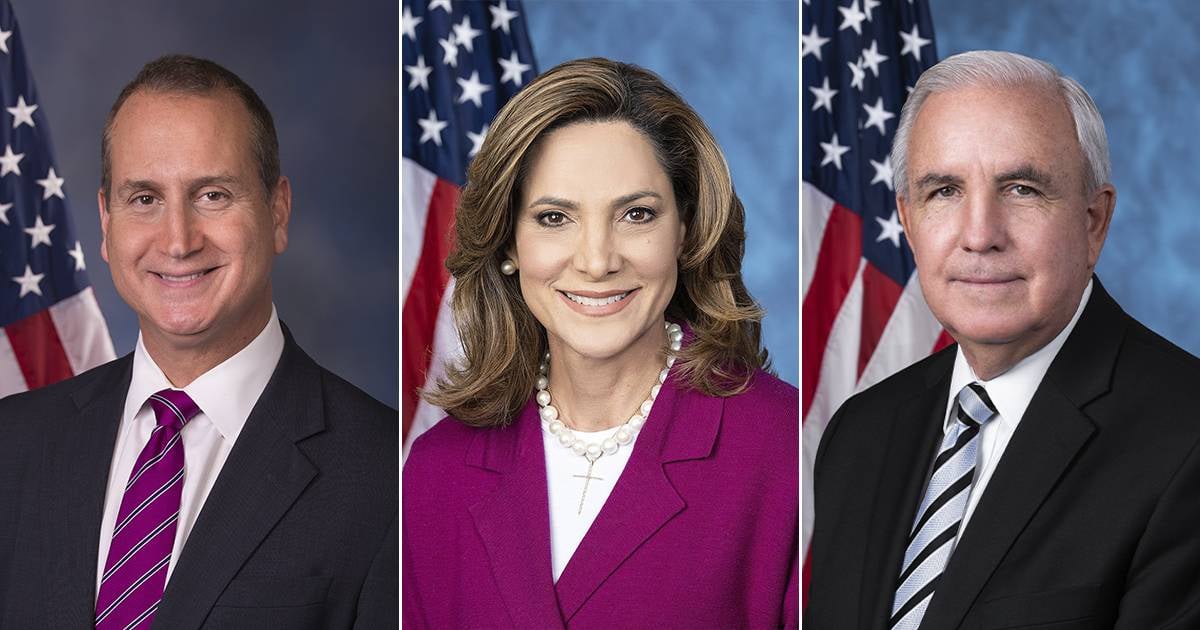Cuban-American representatives Mario Díaz-Balart, María Elvira Salazar, and Carlos A. Giménez have publicly praised the decision by Donald Trump's administration to reinstate Temporary Protected Status (TPS) for Venezuelan migrants. This announcement follows a federal court's order blocking the cancellation of the program. The U.S. Citizenship and Immigration Services (USCIS) made this announcement on Thursday, adhering to an order from the Northern District of California judge issued on March 31. This decision brings relief to around 350,000 Venezuelans who were facing the threat of deportation starting this month.
On social media platform X, Republican congressman Mario Díaz-Balart stated, "I am pleased that TPS for Venezuela in 2023 has been extended until October 2, 2026. I have always supported a secure border and a fair immigration system. I will continue to support those forced into exile and work alongside the Trump administration to ensure that those affected by Biden's grotesque border policies, with legitimate asylum claims, are heard." Díaz-Balart further emphasized his ongoing commitment to the cause of freedom, praising Trump as "the greatest ally in this fight."
In contrast, María Elvira Salazar hailed the news as a significant achievement: "GREAT NEWS! The DHS and Secretary Noem will extend TPS for Venezuelans for another 18 months. I have been leading this fight for MONTHS! Thanks to the Administration for doing the right thing. Let's use this extra time to oust Maduro."
Carlos A. Giménez expressed his satisfaction as well: "It's extremely important that TPS is extended for Venezuelan exiles. This allows them to stay in the country, continue working, and eventually legalize their status. I keep pushing for solutions for Venezuelans, Cubans, and Nicaraguans with humanitarian parole. We are vigilant and ready to negotiate to resolve this immigration limbo."
However, activists and citizens pointed out on social media that the action was not a voluntary decision by the government, but rather the result of a judicial order that prevented the program's cancellation. Several users firmly reminded that Donald Trump's administration attempted to eliminate TPS for Venezuela in February 2025, arguing that "conditions in the country had improved." This decision led to numerous complaints from immigration rights organizations, who cited discriminatory motives behind the status cancellation.
Implications of the Judicial Order
The court order not only keeps TPS for Venezuela active but also automatically extends work permits (EAD) issued under categories A12 or C19, which were set to expire between September 2022 and September 2025, until April 2, 2026. Additionally, the SAVE platform, used by public agencies to verify migrants' eligibility, will follow the official Federal Register notice from January 17, 2025, which confirms this extension.
Meanwhile, thousands of Cubans, Haitians, and Nicaraguans await a similar resolution concerning the humanitarian parole program amidst increasing political and legal pressures to determine the future of tens of thousands of people under this mechanism.
FAQs on the Reinstatement of TPS for Venezuelans
What does the reinstatement of TPS mean for Venezuelans in the U.S.?
The reinstatement of TPS allows approximately 350,000 Venezuelans to remain in the U.S. without the threat of deportation and extends their eligibility to work legally until October 2, 2026.
Why was the TPS cancellation blocked?
A federal court blocked the cancellation of TPS for Venezuelans, arguing that the conditions in Venezuela had not improved sufficiently to justify the termination of the protective status.
How does this decision affect work permits for Venezuelans?
The decision automatically extends the work permits (EAD) of Venezuelans under TPS categories A12 or C19 until April 2, 2026, allowing them to continue working legally in the U.S.
